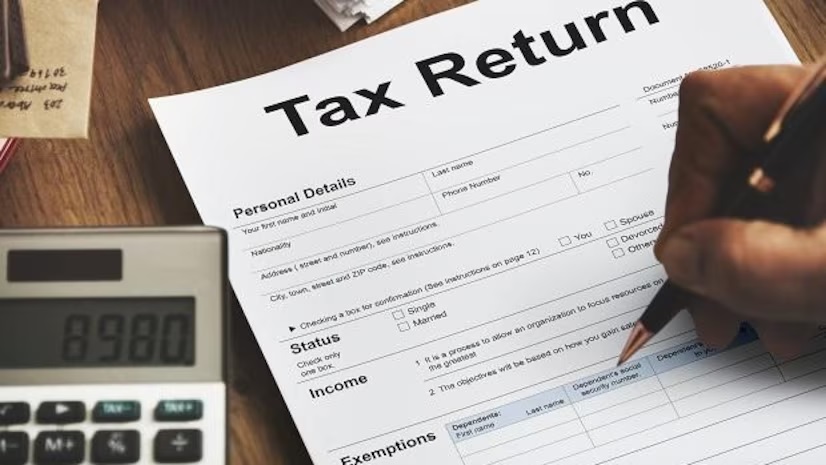The government introduced the updated Income Tax Return (ITR) in the Finance Act, 2022. With this, the time to revise the income tax return was reduced considerably. But, to avail the facility of updated ITR filing, additional tax has to be paid on the outstanding tax. The question is what is updated ITR?
If you miss filing ITR by the last date or there is some mistake in the ITR filed by you or you feel that the income you have declared is less than your actual income, then you can file updated income tax return in ITR-U form. This will prevent the Income Tax Department from sending you a notice and you will avoid paying more money as penalty. The Income Tax Department has notified Form ITR-U for filing updated returns for the financial year 2019-20 and subsequent years.
When can a taxpayer file an updated return?
The Finance Act, 2022 allows filing of updated returns under certain circumstances. The Finance Act, 2025 extends the time limit for filing updated returns and introduces new conditions:
A taxpayer can file an updated return under the following circumstances:
-If the taxpayer has filed the original return under section 139(1) but subsequently realises that he has omitted to disclose any income or has under-disclosed any income.
If a taxpayer has filed a belated return under section 139(4) but later realises that he has not disclosed any income
-If a taxpayer has filed a revised return under section 139(5) within the due date but subsequently realises that he has not correctly disclosed any income.
-If a taxpayer misses filing income tax return for any reason.
Situations in which updated return cannot be filed:
If there is no additional tax liability (This means when filing of return increases refund, reduces tax liability or increases loss.)
-If the Income Tax Department has initiated or closed assessment proceedings for the relevant assessment year.
-If a show cause notice under section 148A has been issued after 36 months from the end of the relevant assessment year. However, the Finance Bill 2025 states that if the assessing officer decides under section 148(3) that the case is not fit for reassessment, then the updated return can be filed within 48 months from the end of the assessment year.
-If the return is being filed to declare income from unexplained cash credit or benami transactions under anti-evasion provisions.
Further, it is important to note that a taxpayer can file only one updated return in an assessment year and once filed, it cannot be revised.
Period for filing ITR-U extended under Budget 2025
One of the major changes made in Budget 2025 is that the time given for filing updated returns has been increased. Earlier, updated returns were required to be filed within 24 months of the end of the relevant assessment year. Now it has been increased to 48 months.
For example, as per the earlier rules, the updated return for assessment year 2020-21 (financial year 2019-20) could be filed till March 31, 2023. Now after the extension of time, the updated return for assessment year 2022-23 (financial year 2021-22) can be filed till March 31, 2027.
How can I file an updated return?
The process of filing ITR-U through the income tax portal incometax.gov.in is quite simple. The taxpayer has to select the reason for filing the updated return and then verify it under digital signature or EVC.
Revised additional tax under updated return
The facility of filing updated returns is not free. The taxpayer has to pay additional tax on the tax paid under the normal provision. The additional tax liability has been changed in the following manner in Budget 2025:
Updated return filed within 12 months from the end of the assessment year:
Additional Tax = 25% of (Regular Tax + Interest)
Updated return filed within 12 to 24 months from the end of the assessment year:
Additional Tax = 50% of (Regular Tax + Interest)
Updated return filed within 24 to 36 months from the end of assessment year (new provision in Budget 2025): Additional tax = 60% of (regular tax + interest)
Updated return filed within 36 to 48 months from the end of assessment year (new provision in Budget 2025): Additional tax = 70% of (regular tax + interest)
This means, on filing updated returns after 36 months, a penalty of 70 per cent of the tax and interest amount will have to be paid.
By increasing the period for filing updated returns to 48 months, taxpayers now have more time to correct their mistakes and comply with income tax rules. However, this becomes quite expensive due to the higher additional tax.
Given the complexity of tax-related issues, if an updated return has to be filed, it would be advisable to seek the help of a chartered accountant or tax advisor to avoid any mistakes.
Filing an updated return helps a taxpayer avoid non-compliance, but it is always better to file your income tax return on time and properly. This prevents you from paying unnecessary penalties or interest.
(The author is a CA. He is an expert in personal finance, especially matters related to income tax.)
